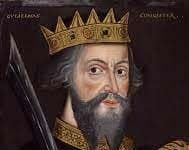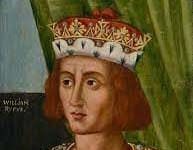“Take a look at the life of Napoleon Bonaparte in a concise table format. Discover his early years, military rise, reign as emperor, and lasting legacy, highlighting key events and interesting facts about this iconic leader.”
Napoleon Bonaparte
Napoleon Bonaparte was a French military and political leader who rose to prominence during the French Revolution and its associated wars. Born on the island of Corsica on August 15, 1769, he later trained as a military officer in mainland France.
After a series of successful military campaigns in Italy and Egypt, Napoleon became the first consul of the French Republic in 1799, and later its Emperor from 1804 until 1814, when he was exiled to the island of Elba. However, he returned to France in 1815 and was defeated at the Battle of Waterloo. He was then exiled again, this time to the remote island of Saint Helena, where he died in 1821 at the age of 51.
His impact on France and Europe was profound. He reformed the French legal system, modernized its educational system, and established a centralized administrative structure. He also brought about religious tolerance and sought to promote equality and meritocracy. On the European continent, he conquered much of Western and Central Europe, leading to the creation of a French-dominated Europe.
His rule was marked by several major wars, including the Napoleonic Wars, which lasted from 1803 to 1815. Despite his many victories, these wars exhausted France and led to the eventual downfall of Napoleon’s empire.
As a military leader, Napoleon was known for his innovative tactics and his ability to inspire and lead his troops. He was also known for his personal charisma, his ambition, and his belief in his own destiny as a great leader. 0 0 0.
Napoleon Bonaparte: Detailed Biography
Early Life
Napoleon Bonaparte was born on August 15, 1769, in Ajaccio, Corsica, after the island was ceded to France by the Republic of Genoa. He was the fourth of eleven children of Carlo Buonaparte and Letizia Ramolino. His family belonged to the minor nobility, and despite limited financial resources, his father’s connections enabled Napoleon to gain entry to the prestigious French military academies. At the age of nine, he was enrolled in the Royal Military School at Brienne-le-Château and later he enrolled at the Ecole Militaire in Paris, where he specialized in artillery.
Military Rise
Napoleon’s career began during the French Revolution. As a staunch supporter of the revolutionary ideals of liberty, equality, and fraternity, he quickly rose through the ranks. His early successes included recapturing the port city of Toulon from British forces in 1793. For this victory, he was promoted to the rank of brigadier general at the age of 24.
Napoleon’s tactical brilliance was evident in his campaigns in Italy (1796–1797), where he defeated Austrian forces and secured French dominance. He received widespread praise for his ability to motivate troops and execute innovative battlefield strategies.
Egyptian Campaign and Political Rise
In 1798, he led an expedition to Egypt, aimed at disrupting British trade routes to India. Although the campaign had mixed military results, it resulted in important scientific discoveries, including the discovery of the Rosetta Stone. Napoleon’s return to France in 1799 coincided with political unrest, leading him to stage a coup and establish the Consulate, effectively ending the French Revolution. He declared himself First Consul, a position that gave him nearly absolute power.
Emperor of France
In 1804, he declared himself Emperor of France, signaling the beginning of the Napoleonic Empire. He implemented sweeping reforms, including the Napoleonic Code, which reorganized the French legal system and influenced legal frameworks worldwide. His economic policies stabilized the French economy, while his educational reforms modernized the system and promoted meritocracy.
Military Victories and the Napoleonic Wars
His reign was marked by a series of military campaigns known as the Napoleonic Wars (1803–1815). His victories at Austerlitz (1805), Jena-Auerstedt (1806), and Wagram (1809) solidified his reputation as one of history’s greatest military strategists. However, his ambition led to exaggeration. His 1812 invasion of Russia was a disastrous failure, as logistical challenges and harsh winter conditions destroyed his Grand Armée.
Downfall and exile
After defeats at Leipzig (1813) and Waterloo (1815), He was forced to abdicate and was exiled to the island of Elba. He escaped in 1815 and returned to France for a brief period known as the Hundred Days, during which he attempted to reclaim his empire. However, his defeat at Waterloo by the Duke of Wellington and Prussian forces marked the end of his rule. Napoleon was exiled to St. Helena, a remote island in the South Atlantic, where he spent the rest of his life under British supervision.
Death and legacy
He died on May 5, 1821, at the age of 51, possibly from stomach cancer, although some theories suggest poisoning. His legacy is complex: while he is celebrated for his military brilliance and administrative reforms, he is also criticized for his authoritarian rule and the human cost of his wars.
His impact on history cannot be denied. His reforms shaped modern Europe, and his life continues to inspire debate and fascination. The Napoleonic Code remains the cornerstone of civil law in many countries, and his military strategies are studied in academies around the world.
Interesting Facts
- Napoleon was not particularly tall, standing about 5’6” (1.68 m) tall, although he was often portrayed as shorter due to British propaganda.
- He was a prolific writer and wrote many memoirs during his exile on St. Helena.
- His influence extended to fashion; he popularized the bicorne hat and coat-in-hand pose seen in many portraits.
Conclusion
He was a man of contradictions: a revolutionary who became emperor, a military genius destroyed by exaggeration, and a reformer whose ambition reshaped nations. His life story is a testament to the complexities of power, leadership, and legacy. 0 0 0
Napoleon Bonaparte: Brief Overview
| Category | Details |
|---|---|
| Early Life | Born on August 15, 1769, in Ajaccio, Corsica; educated in French military academies. |
| Military Rise | Rose rapidly during the French Revolution; recognized for victory at Toulon in 1793. |
| Egyptian Campaign | Led 1798 campaign, discovered the Rosetta Stone; staged a coup in 1799 to become First Consul. |
| Emperor of France | Crowned Emperor in 1804; introduced the Napoleonic Code and modernized France’s economy. |
| Napoleonic Wars | Reigned over European geopolitics (1803-1815); notable victories at Austerlitz and Wagram. |
| Downfall and Exile | Defeated at Leipzig and Waterloo; exiled to Elba and then Saint Helena. |
| Death and Legacy | Died May 5, 1821; remembered for the Napoleonic Code and global influence on military strategy. |
| Interesting Facts | – Around 5’6” tall. |
| – Wrote extensively during exile. | |
| – Influenced European fashion trends. | |
| Conclusion | A figure of brilliance and ambition, Napoleon left a lasting mark on history. |
N.B. The article originally belongs to the book ‘Brief Biographies of Eminent Monarchs‘ by Menonim Menonimus.
Books of Biography by M. Menonimus:
- The World Writers-Brief Biographies
- Introduction to World Writers
- Introduction to World Personalities
- Love of Reputed Persons
- Brief Biographies of Ancient Thinkers and Writers..
Additional Searches:
- Famous Kings and Queens
- Living Biographies of Famous Rulers
- Biography of Elizabeth II
- Most Famous Kings in History











